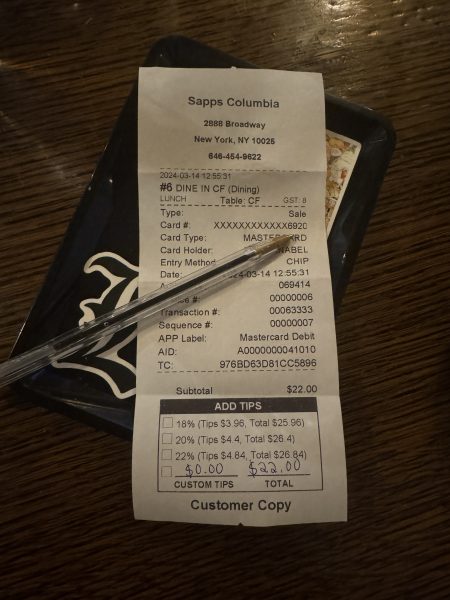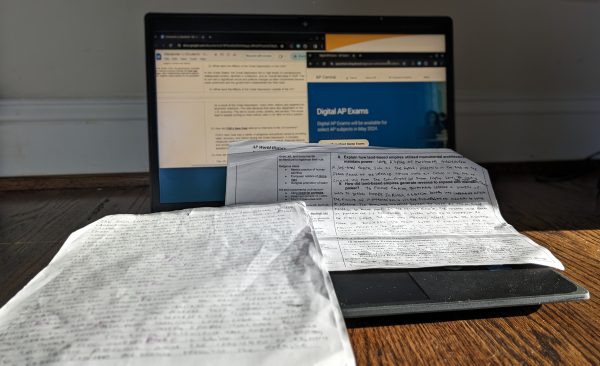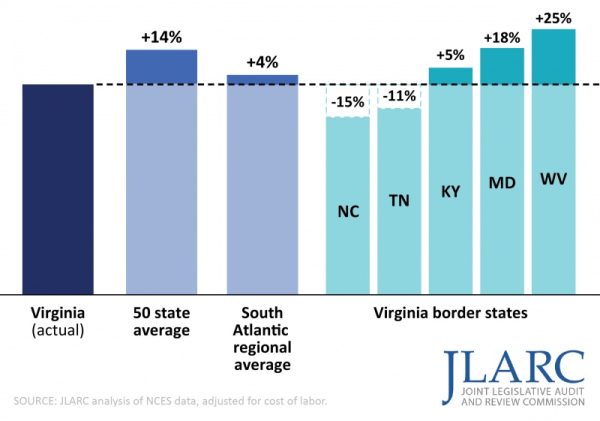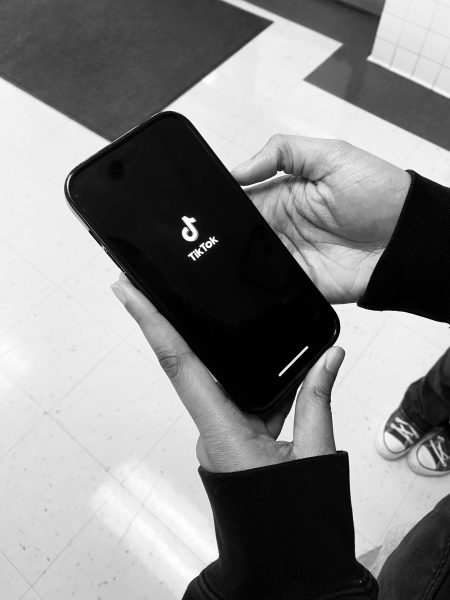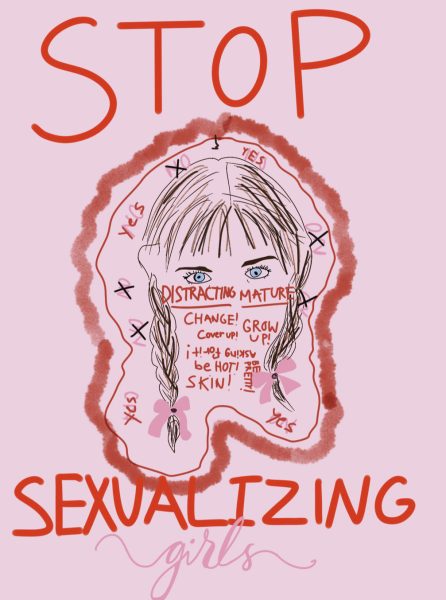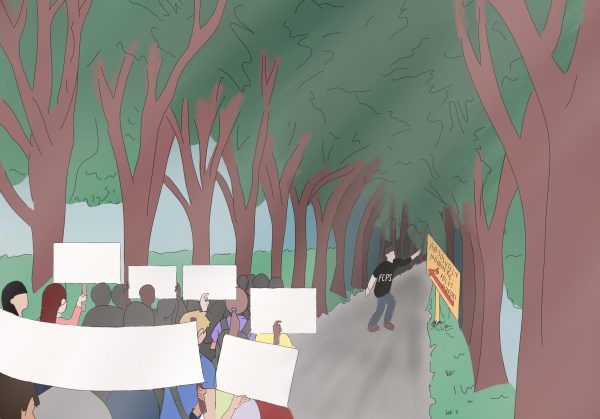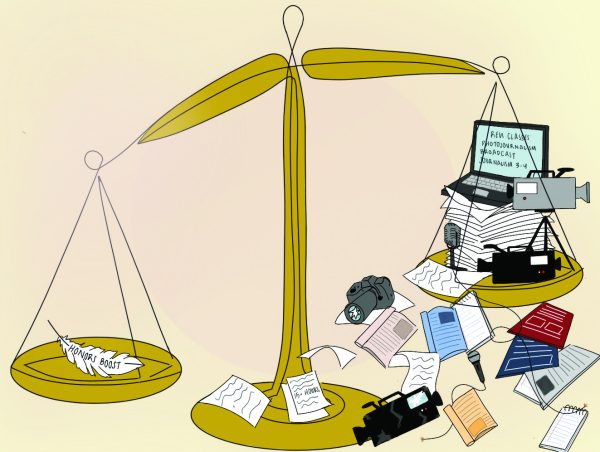Taking a knee
Black lives actually matter
October 1, 2018
All of Levi Stadium stood up, placing their right hands over their hearts for the national anthem, but Colin Kaepernick remained seated. The former NFL San Francisco 49ers quarterback was treating a shoulder injury; thus, his lack of motion was initially overlooked.
But everything changed on Aug. 26, 2016, when Kaepernick took his first kneel. Football fans and publicity hawks alike took notice of this “unusual” behavior. Photos of him kneeling during the national anthem circulated Twitter, where many quickly labeled him as disrespectful.
Kaepernick announced that he is raising awareness around social injustice and protesting police brutality of African Americans. However, his motive is repeatedly misconstrued as irreverence for the country, flag, police and military.
“I am not going to stand up to show pride in a flag for a country that oppresses black people and people of color,” Kaepernick said in an interview with The Washington Post. “To me, this is bigger than football, and it would be selfish on my part to look the other way. There are bodies in the street and people getting paid leave and getting away with murder.”
There has been widespread political controversy as a result of Kaepernick’s 2016 demonstration. Students and elected officials alike have engaged in discussion regarding the implications of his actions.
“Kaepernick was kneeling for the #BlackLivesMatter movement, [which] isn’t anti-white nor anti-police it just recognizes that the police have had an entire system in place that enables the racist cops to kill and harass black people without proper consequences,” senior Lauren Grobman said. “So if kneeling in a peaceful manner is the most disrespectful thing someone can do to this country… you need to reevaluate your priorities. Kneeling is not disrespecting America. It’s acknowledging that it has the capability for progress and justice.”
Themes such as police brutality and the abuse of power have colored the majority of conversation. Some support these concepts as Kaepernick’s motivation for taking a knee.
“I think police brutality [and the] discrepancies between the way white people are treated [in comparison to] everyone else need to be highlighted because it’s been going on forever,” counselor Greg Olcott said. “It’s good that people finally feel strong enough and passionate enough to go out there and fight for it.”
On Sept. 6, Nike introduced its “Dream Crazy” campaign, narrated by Kaepernick, during the season opener between the Atlanta Falcons and Philadelphia Eagles. Since its release, there has been roaring controversy surrounding Nike’s decision to choose Kaepernick as their centerpiece.
Using a visible platform is a responsibility. Kaepernick believes that using his platform to provide a voice to the voiceless matters. Nike is also using their platform to launch a campaign that sends direct messages. But it is critical to evaluate whether everyone carries the same perspective.
“I see it in the way that Nike endorses somebody who hates the hard-working men and women of this country’s police forces,” junior Max Wohlschlegel said. “Don’t get me wrong, an ex-athlete getting paid to ‘kneel’ for a cause is great, but there are bigger issues that affect the black community. What about the black-on-black violence in America?”
The Bureau of Justice Statistics records that the amount of white-on-white violence is four times higher than the amount of black-on-white violence. In contrast, the amount of black-on-black violence is five times higher than the amount of white-on-black violence. However, this does not justify the fact that 62.7 percent of unarmed victims of police brutality are minorities, according to Vox.
Police brutality has become an incredibly polarizing issue in American society. There have been hundreds of instances of police shootings and the killing of unarmed black men. The hyper-transparency of social media has exacerbated the problem, as the atrocities are going viral online at a rapid pace. Athletes have a history of using their highly visible platforms to protest political and societal matters.
In 1968, John Carlos and Tommie Smith made headlines worldwide when they raised their fists in a ‘black power salute’ on the podium after winning in the 1968 Olympics. Their quiet protest brought forward death threats, and they were expelled from the games. Muhammad Ali famously refused to be drafted into the Vietnam War, a refusal that resulted in jail time. NBA players LeBron James and Kobe Bryant and many others have helped visibly support the #BlackLivesMatter movement, wearing supportive gear following the death of Eric Garner, who was choked to death in New York.
Every American has the right to speak out and to protest; these are First Amendment rights. However, speaking out is not easy, especially if nobody is willing to listen.
“Some adversities that people face are more difficult to go through than they might be for people who have had things given to them. Students need to know that they can stand up and disagree with something they think is not right,” Olcott said.
Meanwhile, at McLean High School, Terry Johnson, a public health teaching assistant and JV basketball coach, points to our own School Resource Officer Scott Davis as an example of a supportive and positive influence within law enforcement
“Officer Davis is a good influence; he’s a good role model for the good of a police officer or law enforcer because he shows that it is not all about just trying to show negativity to someone,” Johnson said. “I think the more law enforcement officers you have like that, society would be better and comfortable being around law enforcement.”
Some may have received the Nike campaign as controversial, but it is an example of a global brand using its platform to catalyze difficult conversations. It has sparked a debate about the breakdown in respect, conduct, the current state of societal relationships, trust and abuse of power. As Americans, we have the right to speak out, and public figures have the responsibility to use their platforms in order to support a movement towards better understanding. Learning to listen without judgment is a difficult skill.
“Don’t be judgmental… No matter what anybody says, you still have to respect one another no matter how you feel, because if you disrespect someone because you feel a certain way, that’s where a lot of the issues come in,” Johnson said. “If you are able to listen, understand and find a way to make a difference together, I think a lot of things would change.”
Messages such as those diffused by the very brand endorsing Kaepernick offer similar positive sentiments.
“Nike says it best: Just Do It… You don’t have to know what is out there and what you are capable of doing—just try it,” Principal Ellen Reilly said. “It’s hard to do it but be comfortable with who you are and love yourself first, and then you can really do anything. You should not [limit yourself]. You never know what is going to happen.”
Our society will become stronger if we learn to have difficult conversations rather than remain silent.
“In a high school world, it’s hard to have a voice that is not a popular voice,” Reilly said. “It’s hard to go against what your friends are saying. Being able to say [what you believe even if it means] giving up friendships…is being able to stand up for what you believe in.”



